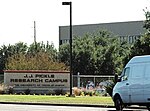Texas Property and Casualty Insurance Guaranty Association
Insurance in TexasOrganizations based in Austin, Texas

The Texas Property and Casualty Insurance Guaranty Association (TPCIGA) is the state-designated insurance guaranty association for property insurance and casualty insurance claims in Texas. It is headquartered in North Burnet–Gateway, Austin.
Excerpt from the Wikipedia article Texas Property and Casualty Insurance Guaranty Association (License: CC BY-SA 3.0, Authors, Images).Texas Property and Casualty Insurance Guaranty Association
Waterford Centre Boulevard, Austin
Geographical coordinates (GPS) Address Nearby Places Show on map
Geographical coordinates (GPS)
| Latitude | Longitude |
|---|---|
| N 30.3756479 ° | E -97.7271787 ° |
Address
Waterford Centre Boulevard 9233
78758 Austin
Texas, United States
Open on Google Maps





